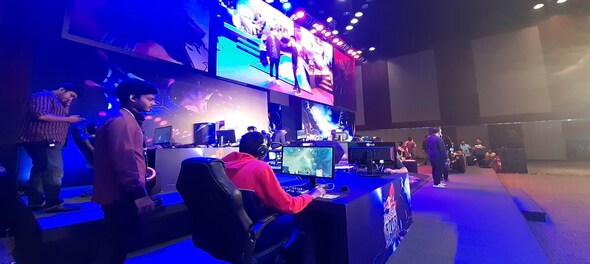
The long overdue GST Council meeting is scheduled to be held on 17th December. It is likely to be a busy affair with deliberations due on several long pending issues. Rationalisation of rates, important clarifications, decriminalisation of some CGST provisions, delineating the contours of a Tribunal, are all on the cards. The elephant in the room will be the issue of levy on online gaming. And this is not even in the agenda as of now-unless it becomes a tabled item.
This is in effect because as per press reports, the Group of Ministers (GoM) constituted to examine the issue has not arrived at any consensus on the critical issue of valuation and is likely to toss the ball (or in this context, the dice) back to the Council. This is unfortunate and perhaps reflective of the confusion caused by the intense lobbying in the media by the online industry.
As has been brought out in multiple articles on the issue, there is a distinction between games of skill (poker for instance) and games of chance. Luck determines the outcome of the latter as the name suggests. Games of skill are levied a GST of 18 percent while there is a 28 percent levy on games of chance or betting. An element of moral overtone is inbuilt in the higher levy imposed on games of chance – frowned upon as gambling, hence a demerit service to be taxed higher.
Also read
The challenge however has not been on the rate itself. The industry will not have an issue on a common higher rate -it will be passed on to the customer. The issue has been the value on which the tax should be levied.
Valuation has always been a challenge in fiscal laws -more so in GST. The levy is on the transaction value-the price which is paid or payable for the supply of goods or in this case, services. GST levies being ad-valorem, there is a temptation to increase the value. The online gaming industry is different from a normal service industry - this has led to the debate whether the levy should be on the rake fee / gross gaming revenue (the fee charged by gaming platforms as a fee for facilitating the game) or on the full consideration.
The online gaming industry has been dramatically vociferous that any move to levy a tax on the entire consideration will mean the ‘death knell’ of the industry; that this will result in ‘killing the goose which lays the golden eggs’; that they are already paying as much as Rs.2200 crore annually in GST. Calculations have been flooding the social media suggesting that a levy on the entire consideration will mean an increase of as much as 187 percent, which will result in a nascent industry struggling to survive. What is not said is that the cost in either case, will be passed on to the customer.
Any levy whereby the taxpayer pays as tax more than what he gets, will obviously fail at the altar of equity. This is a matter of fact, and the GST council will have to take a pragmatic stand. The argument that the online gaming industry provides employment is no argument to justify treating them specially. The argument that they also pay income tax on their earnings is a specious argument-these are different levies, and it is true of all industries and services.
To sum up the distinction between games of skill and games of chance should be done away with as it leads only to litigation. (A joint report by a leading industry chamber and consultancy firm seeks to suggest that online games of chance too require skill).
The value on which the levy should be charged should be the entire consideration-subject to the caveat that they cannot be a tax more than what is earned. Ideally the levy should be 28 percent across both these types of games; a lesser rate of 18 percent can be considered as a temporary measure with a road map to reach 28 percent. ITC will in any case be available.
The online gaming industry has a bright future. Levy of GST is not going to kill it, but lack of clarity will. The earlier the GST council does take a decision, the better for the industry and the department.
—The author Najib Shah is former Chairman, Central Board of Indirect Taxes & Customs.
Read his previous columns here
(Edited by : CH Unnikrishnan)
First Published: Dec 16, 2022 7:54 AM IST
Check out our in-depth Market Coverage, Business News & get real-time Stock Market Updates on CNBC-TV18. Also, Watch our channels CNBC-TV18, CNBC Awaaz and CNBC Bajar Live on-the-go!


Prajwal Revanna's father in custody for alleged kidnapping and sexual abuse
May 4, 2024 7:53 PM
Delhi, Indore, Surat and Banswara — why these are the most challenging domains for Congress internally
May 4, 2024 1:53 PM
Congress nominee from Puri Lok Sabha seat withdraws, citing no funds from party
May 4, 2024 12:00 PM
Lok Sabha Polls '24 | Rahul Gandhi in Rae Bareli, why not Amethi
May 4, 2024 9:43 AM

